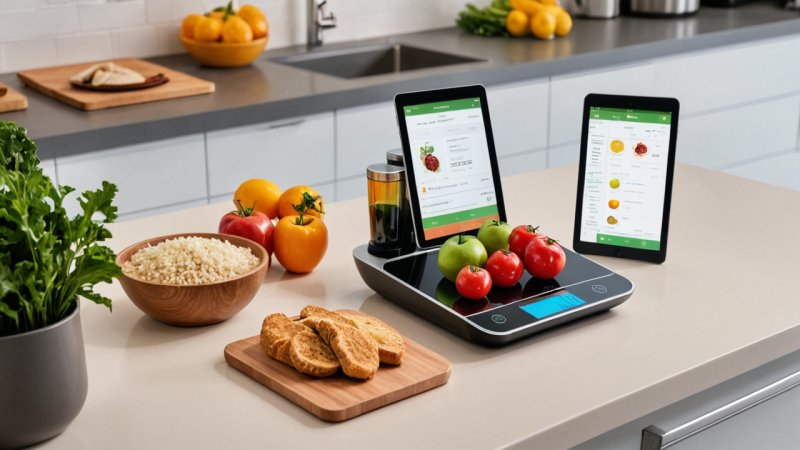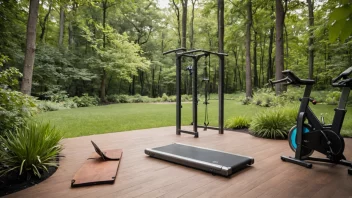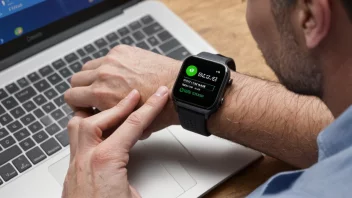Introduction
Smart kitchen devices have revolutionized the way we prepare food and manage our diets. With the rise of technology in the culinary world, tracking nutrition has never been easier. Whether you're looking to lose weight, gain muscle, or simply eat healthier, these gadgets can provide valuable insights into your eating habits. Below, we answer some common questions about how to effectively use smart kitchen devices to track your nutrition.
What types of smart kitchen devices can help track nutrition?
There are several types of smart kitchen devices designed to help you monitor your nutrition:
- Smart Scales: These scales not only measure weight but also provide nutritional information about the food you’re weighing.
- Smart Meal Prep Containers: These can track portion sizes and calorie counts, and some even sync with apps to help you plan meals.
- Smart Kitchen Thermometers: Ensuring food is cooked to the right temperature can significantly impact its nutritional value.
- Smart Blenders: Some models come with apps that help you track the nutritional content of your smoothies and shakes.
- Connected Cooktops and Ovens: These devices can help you follow recipes that are tailored to your dietary goals.
How do I choose the right smart kitchen device for my needs?
Choosing the right device depends on your specific dietary goals and cooking habits. Consider the following:
- Identify Your Goals: Are you trying to lose weight, build muscle, or eat healthier?
- Assess Your Cooking Style: Do you cook frequently or only on occasion? This will dictate the types of devices you'll benefit from.
- Read Reviews: Look for user reviews and expert opinions to find reliable devices that perform well.
- Consider Compatibility: Ensure the device pairs well with any existing apps or systems you use.
Can I use smart kitchen devices without being tech-savvy?
Absolutely! Many smart kitchen devices are designed to be user-friendly. They often come with intuitive apps and interfaces that guide you through the setup process. Additionally, there are plenty of resources available, such as online tutorials and customer support, to help you get started. Just take your time to familiarize yourself with the device before diving into tracking your nutrition.
How can I integrate these devices into my daily routine?
Integrating smart kitchen devices into your daily routine can be seamless with these tips:
- Set a Schedule: Plan your meals ahead of time and set reminders to use your devices during meal prep.
- Use Apps to Track Progress: Take advantage of any accompanying apps to log your meals and track your nutritional goals.
- Make it Social: Share your progress with friends or family to stay motivated.
- Experiment: Try out different recipes and methods, using your smart devices to enhance your cooking experience.
Are there any privacy concerns with using smart kitchen devices?
Privacy concerns can be valid when using any connected device. To mitigate risks:
- Read Privacy Policies: Understand what data is being collected and how it is used.
- Adjust Privacy Settings: Many devices allow you to control what information is shared.
- Keep Software Updated: Regular updates can help protect against security vulnerabilities.
What are some popular smart kitchen devices for tracking nutrition?
Here are a few popular smart kitchen devices to consider:
- Fitbit Aria 2 Smart Scale: Tracks weight and body fat percentage and syncs with the Fitbit app.
- NutriBullet Balance: A smart blender that connects to an app to help you track nutrition.
- Smart Measuring Cups: These cups can calculate nutritional information based on the ingredients you measure.
- MYWEIGH KD-8000: A highly accurate scale with features for nutritional tracking.
Conclusion
Smart kitchen devices provide a practical solution for tracking nutrition and improving your eating habits. By understanding how to use these tools effectively, you can enhance your daily life and achieve your dietary goals. Whether you’re a seasoned chef or a kitchen novice, incorporating technology into your cooking routine can lead to healthier choices and better overall well-being.






